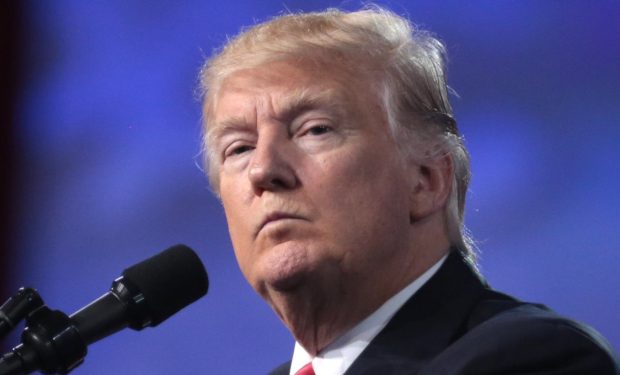Former President Donald Trump‘s attorney John Sauer had numerous challenges to meet as he argued for a broad interpretation of Presidential Immunity for his client in front of a 3-judge panel on the DC Circuit Court of Appeals.
On a day when most media, including numerous legal analysts, reported that all three judges seemed skeptical of the immunity claim — a claim already shot down in a decision by Judge Tanya Chutkan, triggering the appeal — Sauer claimed a scope of immunity for his client that would, in some far-fetched hypotheticals, allow a president to escape prosecution by murdering Senators who might vote to convict him after impeachment.
In addition to such unthinkable potential consequences of a broadly applied immunity, Sauer must also battle a truism which he says, citing a 1980 Supreme Court case, isn’t true. That truism is the commonly held belief that “immunity” is synonymous with “above the law.”
No, when the president does it, that doesn't make it legal. We've been through this before. https://t.co/z3GFOw4Yyw
— Above the Law (@atlblog) January 9, 2024
Attempting to split hairs very finely, Sauer worked to separate the word “immunity” from the idea that it means “above the law.”
These are not the same, Sauer argues, asserting that the SCOTUS itself separated the ideas in Nixon v. Fitzgerald, where the primary holding was: “The President has absolute immunity from liability for civil damages arising from any official action taken while in office.”
Acknowleding that Nixon v. Fitzgerald considered “liability for civil damages” — not criminal charges, as Trump faces — Sauer cited a dissent in the case, telling the court:
“The opposing counsel used the phrase ‘above the law’ saying that an immunity doctrine for criminal immunity would place the president above the law. I would direct the court’s attention to what the Supreme Court said in Nixon against Fitzgerald in the context of civil immunity. They describe the allegation that immunity sets the official above the law as quote, ‘rhetorically chiling but wholly unjustified.'”
[NOTE: This is from footnote 41, which reads in part: “The dissenting opinions argue that our decision places the President ‘above the law.’ This contention is rhetorically chilling, but wholly unjustified.”]
Chief Justice Warren Burger went out of his way in Nixon v. Fitgerald to clarify that the President was not above the law, adding a note to his concurrence, writing:
The dissents are wide of the mark to the extent that they imply that the Court today recognizes sweeping immunity for a President for all acts. The Court does no such thing. The immunity is limited to civil damages claims. Moreover, a President, like Members of Congress, judges, prosecutors, or congressional aides — all having absolute immunity — are not immune for acts outside official duties. Even the broad immunity of the Speech and Debate Clause has its limits.
Justice Burger, SCOTUS, 1982
